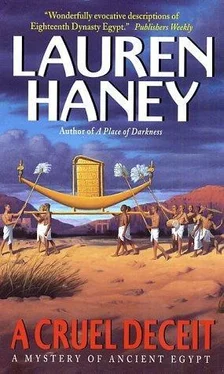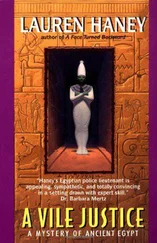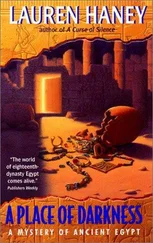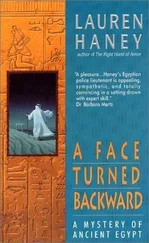Lauren Haney - Cruel Deceit
Здесь есть возможность читать онлайн «Lauren Haney - Cruel Deceit» весь текст электронной книги совершенно бесплатно (целиком полную версию без сокращений). В некоторых случаях можно слушать аудио, скачать через торрент в формате fb2 и присутствует краткое содержание. Жанр: Исторический детектив, на английском языке. Описание произведения, (предисловие) а так же отзывы посетителей доступны на портале библиотеки ЛибКат.
- Название:Cruel Deceit
- Автор:
- Жанр:
- Год:неизвестен
- ISBN:нет данных
- Рейтинг книги:4 / 5. Голосов: 1
-
Избранное:Добавить в избранное
- Отзывы:
-
Ваша оценка:
- 80
- 1
- 2
- 3
- 4
- 5
Cruel Deceit: краткое содержание, описание и аннотация
Предлагаем к чтению аннотацию, описание, краткое содержание или предисловие (зависит от того, что написал сам автор книги «Cruel Deceit»). Если вы не нашли необходимую информацию о книге — напишите в комментариях, мы постараемся отыскать её.
Cruel Deceit — читать онлайн бесплатно полную книгу (весь текст) целиком
Ниже представлен текст книги, разбитый по страницам. Система сохранения места последней прочитанной страницы, позволяет с удобством читать онлайн бесплатно книгу «Cruel Deceit», без необходимости каждый раз заново искать на чём Вы остановились. Поставьте закладку, и сможете в любой момент перейти на страницу, на которой закончили чтение.
Интервал:
Закладка:
As Bak made the turn, he glanced back. He saw no sign of
Psuro or the Medjays or Sitepehu. They must have tried to cut through the court and had gotten caught up in the crowd.
The grass was wet, often ankle-deep in water left by the ebbing flood. The new greenery risen out of the saturated earth was thick and luxuriant, too tempting to be ignored by residents of nearby housing blocks. A dozen or so donkeys were tied to widely spaced stakes in the ground, and an old man and a dog sat beneath an acacia, watching the crowd while tending a large flock of goats and sheep brought out to graze on the lush new foliage.
Pahure pulled up his long kilt, freeing his legs for speed, and ran toward the flock, spread out across the grass. Bak raced after him. Water erupted from beneath their pounding feet, splashing their legs. The dog began to bark, exciting the animals in the flock. A few spectators turned to look, but most were so intent on the soon to approach procession that they could not be distracted. Bak heard a second blare of trumpets and the swell of voices as the people amassed in the court greeted their sovereigns, emerging from Ipet-resyt after a week of rituals celebrating their divine birth and the renewal of their spiritual power.
A splendid white ram, the wool on his belly clumped with mud, began to trot toward the river, making the clapper tied to his neck ring, enticing his flock away from what he took to be danger. The animals bunched up to follow, forc ing Pahure close to the spectators, who stood ten-deep or more all along the processional way. The dog’s barking grew more frantic and it ran out into the grass. The old man stood and, shaking a fist, began to yell. The sheep and goats at the rear of the flock broke into a faster trot, pushing the others forward. People turned to look, but another blast of trumpets drew their gaze back to the court, where the lord
Amon was leaving his southern mansion and the standard bearers had turned west to lead the procession toward the river.
Bak prayed Pahure would remain on the grass, staying well clear of the processional way, and that he would not turn back toward the temple. He did not wish to become en tangled by priests and dancers and musicians and, above all,
Maatkare Hatshepsut, Menkheperre Thutmose, and their ret inue. The very least that would happen would be the stew ard’s escape.
The dog raced toward the flock. The old man yelled more desperately, trying to call it back. Untrained, Bak guessed, and excited by the chase, it ran on, barking wildly. As it raced in among the stragglers, making them bleat in terror, the flock broke apart, with sheep and goats trotting in all di rections, several threatening to run Pahure down. Forced into the crowd, he shoved men and women out of his way, raising a chorus of angry objections. Bak, also caught up in the melee, stayed behind the spectators, ducking around one animal after another, fearful of losing sight of his quarry.
The ram turned and, head down, charged the dog. With a sharp yelp and its tail between its legs, it raced away through the flock. Frightened and confused, the sheep and goats pushed in among the spectators, bumping bare legs and stepping with sharp little hooves on sandaled feet. The people began to scatter, the approaching procession no longer able to hold their attention. Men yelled and cursed and tried to beat back the animals, while children laughed with glee, thoroughly enjoying the commotion. The soldiers along the near side of the processional way broke their line to help.
The thoroughfare, a wide expanse of sparkling white limestone chips, empty of humanity all the way to the river’s edge, was too inviting to resist. Pahure burst out from among the spectators to run west along this easier course.
Bak shouldered his way through the crowd, unwittingly opening a path for the ram. He glanced to the east, glimpsed the standard-bearers leading the procession toward him.
With a sinking feeling in the pit of his stomach, he set off af ter Pahure, who was dashing along the thoroughfare, kilt held well above his knees. The waterfront lay not fifty paces ahead of him.
The line of soldiers along the south side of the pro cessional way broke apart and the men ran onto the lime stone path. Bak thought at first they meant to chase Pahure, then realized half the flock had followed the ram through the crowd and the animals were spreading out across the thor oughfare in front of the approaching procession.
Openly horrified by the potential for catastrophe, the ser geant in charge yelled to his men, “Get those wretched crea tures out of here.” Practically tearing out his hair, he added,
“The ram. Somebody catch him. Lead him away. Cut his throat if you have to.”
The soldiers, many of them innocent in the ways of ani mals, tried to press them back in among the spectators; in stead, they set them to flight. The men and women lining the thoroughfare surely recognized the seriousness of the situa tion, but, following their children’s example, they began to laugh. Even Bak, racing on, had to smile, though he suspected he would be the man held to account. Especially if he didn’t lay hands on Pahure.
Forcing himself to greater effort, Bak gradually closed the distance between himself and his quarry. Ahead, the royal barge was moored against the riverbank at the end of the processional way. Behind the highly polished wooden craft and tethered to it by thick ropes, the golden barge of the lord
Amon rocked gently on the swells. In front of the royal ves sel, tied to temporary mooring posts embedded in the mud bank, were the ten boats that would tow the barges downstream, guiding them along the water’s edge to Ipet isut. Each boat, bound to the vessel behind it by a long, stout rope, had been freshly oiled and painted. Colorful pennants fluttered from masts and stays.
All along the shore against which the barges and boats were moored, spearmen held the crowd back, allowing plenty of space for the royal pair and the lord Amon, the standard-bearers, priests, and musicians to board the appro priate craft for the voyage downstream.
With the sacred barge raised high upon the floodwaters, its deck above the riverbank, the priests standing on the bow had a clear view of the processional way, of the scurrying soldiers and frightened flock. Garbed all in white and shaven bald, with two men wearing leopard skins over their shoul ders, they lined the rail, staring down the thoroughfare, ap palled by the pandemonium.
The boatmen on the royal barge had an even better view.
Rather than standing in serious expectancy while they awaited their sovereigns and their god, they were laughing heartily at the frantic gathering up of obstinate sheep and goats. The spectators waiting along the riverbank craned their necks, trying to see what was going on.
Pahure ran to the water’s edge along which the royal barge was moored. He glanced over his shoulder, saw how close Bak had come. With the path ahead barred by the ves 280
Lauren Haney sel and with any retreat cut off, he turned southward to race along the muddy shore toward the stern.
A soldier yelled, “Now look here, sir! You’re not al lowed…” He spotted Bak, blustered, “And you…”
“Police!” Bak ran into the open area along the river and raised his baton of office so all who looked could see. “That man’s a criminal. He must be stopped.”
Voices buzzed among the spectators, who pressed against the line of spearmen, eager to see. The soldiers, who might have helped Bak, given the chance, had to shove the crowd back, keeping clear the area their sovereigns and their god would, in a short time, tread.
Cursing the curiosity that so often stole away common sense, Bak ran on after Pahure. The steward, reaching the bow of the sacred barge, paused as if unsure what he should do. He glanced back at his pursuer; looked up the line of vessels tethered to the sacred craft, none of which he could hope to board and cut free; and stared out across the river at the distant shore and the flotilla of boats too far upstream to be of help. Those short moments of hesitation proved his un doing. Bak leaped at him. The steward ducked away, slipped in the mud, and half fell, half dived into the silt-laden water.
Читать дальшеИнтервал:
Закладка:
Похожие книги на «Cruel Deceit»
Представляем Вашему вниманию похожие книги на «Cruel Deceit» списком для выбора. Мы отобрали схожую по названию и смыслу литературу в надежде предоставить читателям больше вариантов отыскать новые, интересные, ещё непрочитанные произведения.
Обсуждение, отзывы о книге «Cruel Deceit» и просто собственные мнения читателей. Оставьте ваши комментарии, напишите, что Вы думаете о произведении, его смысле или главных героях. Укажите что конкретно понравилось, а что нет, и почему Вы так считаете.












